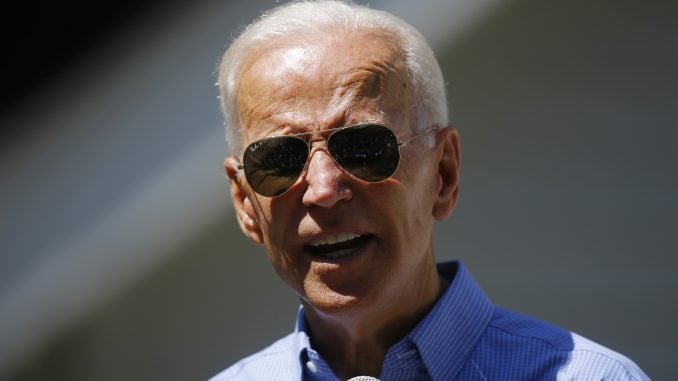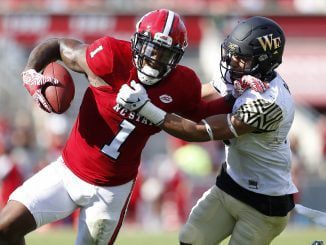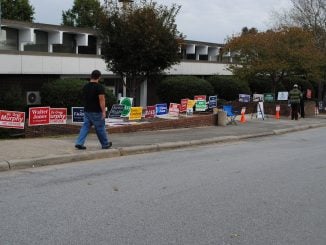
COLUMBIA, S.C. — For I.S. Leevy Johnson, the Democrats’ search for a challenger to take on President Donald Trump is personal.
“There is what I call an ‘ABT mood’ in the black community: Anybody but Trump,” said the 77-year-old who was the first black graduate of the University of South Carolina’s law school. “It has people of color very motivated and excited about voting this time, because they know how his administration has adversely affected them.”
Now, as the election calendar turns to Nevada and South Carolina, states with substantial minority populations, that “anybody” moves closer to being identified. But the next stage in the nominating fight will test candidates such as Sens. Bernie Sanders of Vermont and Amy Klobuchar of Minnesota, and Pete Buttigieg, the former mayor of South Bend, Indiana. Their success thus far has come in front of overwhelmingly white electorates in Iowa and New Hampshire.
It’s also a potential last comeback opportunity for former Vice President Joe Biden. He finished poorly in those first two contests but argues he has durable support among the minority voters who will soon make their choices.
Nevada’s caucuses are this coming Saturday and will feature a growing population of Latinos, African Americans, Asian Americans and Pacific Islanders. Yet no single place in the early going is as important as South Carolina. Up to two-thirds of voters in the Feb. 29 primary could be African American. Biden, more than any other candidate, must show he can win their allegiance.
It adds up to a muddled field that lacks clarity even after Iowa and New Hampshire had their turns. Moderates have splintered their votes and created space for Sanders, a self-described democratic socialist, to take on the mantle of a front-runner without having reached 30% in either of the first two voting states.
Sanders fell short in 2016 to Hillary Clinton for the nomination in no small part because of his struggles to attract older nonwhite voters. For 2020, he has hired as a senior adviser one of the top Latino strategists in the party, Chuck Rocha. Sanders’ lead surrogates include Nina Turner, a former Ohio state lawmaker and leading black progressive, and U.S. Rep. Alexandria Ocasio-Cortez of New York, the young progressive icon. Sanders’ campaign, buoyed by strong grassroots fundraising, has invested heavily in social media and radio advertising targeting black and Latino audiences, including stations on Spotify and Pandora.
“I think we’re going to do very well in the African American community,” Sanders said in a brief interview. “I think we’re going to do well among working people of all races.”
In Nevada, Biden campaigned on Saturday in a high school gymnasium covered in signs that read: “Biden Trabajando por Nevada” (Biden Works for Nevada). “The reason why we are here: 99% of the African American vote hasn’t spoken yet and 99% of the Latino vote hasn’t spoken yet.”
But Biden has embraced South Carolina especially, even skipping out on his New Hampshire primary night party last Tuesday for a hastily arranged event in Columbia, the South Carolina capital.
In Nevada, Biden has the backing of the state’s lone black congressman, Steven Horsford, and Dina Titus, who represents the diverse Las Vegas-based district.
But there’s a wild card in South Carolina.
U.S. Rep. Jim Clyburn, the highest-ranking black member of Congress, is close to Biden but hasn’t said whether he will endorse at all. Clyburn is the rare political figure whose public blessing could matter to voters.
“I think that we’re going to have a real spirited contest,” Clyburn told CBS’ “Face the Nation’’ earlier. He said Steyer was “doing an incredible job. … Money makes a difference. Steyer has it. He’s been spending it. And he’s reaping the rewards.’’ Clyburn added that Buttigieg is doing “very good” and Biden “is leading among African-American voters in South Carolina by a wide margin.”
The chairman of the Texas Democratic Party, Gilberto Hinojosa, whose state is among the biggest delegate prizes on Super Tuesday, praised all the remaining candidates. But he lamented that several minority candidates, including some political heavyweights, were forced from the field either before voting began or after the first two contests. Among them: Julian Castro, a former Obama Cabinet secretary; Kamala Harris, a California senator; Cory Booker, a New Jersey senator; and Deval Patrick, a former Massachusetts governor.



